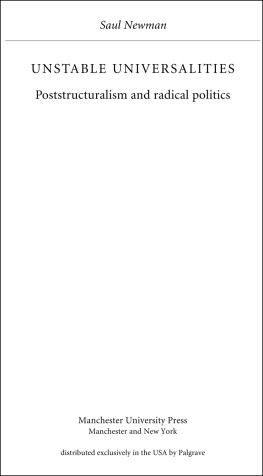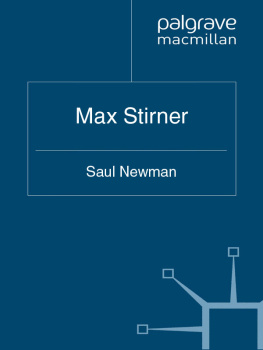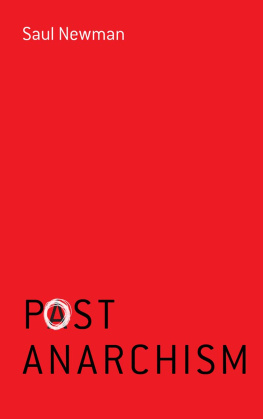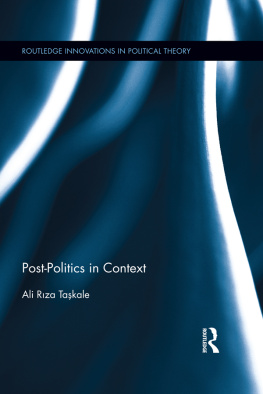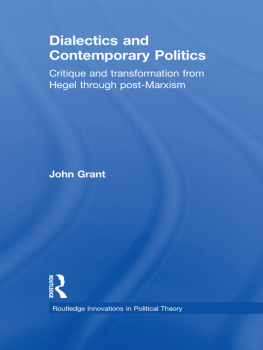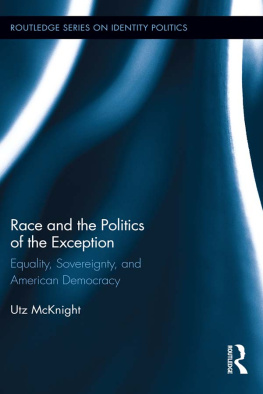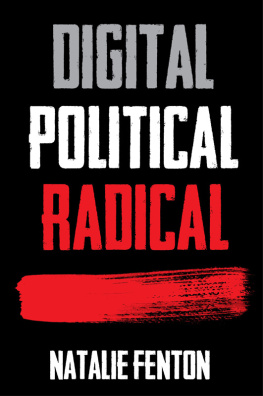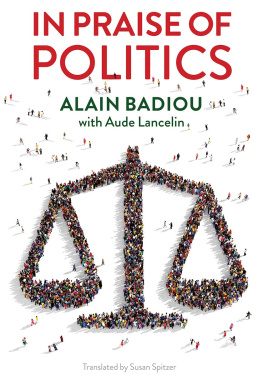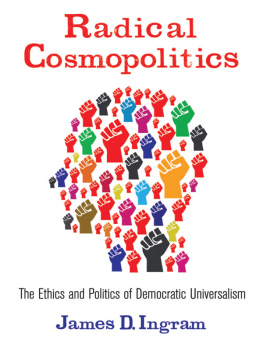Unstable universalities
REAPPRAISING THE POLITICAL
Simon Tormey and Jon Simons series editors
The times we live in are troubling, and as always theory struggles to keep pace with events in its efforts to analyse and assess society, culture and politics. Many of the contemporary political theories emerged and developed in the twentieth century or earlier, but how well do they work at the start of the twenty-first century?
Reappraising the Political realigns political theory with its contemporary context. The series is interdisciplinary in approach, seeking new inspiration from both traditional sister disciplines, and from more recent neighbours such as literary theory and cultural studies. It encompasses an international range, recognising both the diffusion and adaptation of Western political thought in the rest of the world, and the impact of global processes and non-Western ideas on Western politics.
already published
Rehinking equality: the challenge of equal citizenship Chris Armstrong
Radical democracy: politics between abundance and lack Lars Tnder and Lasse Thomassen (eds)
The biopolitics of the war on terror: life struggles, liberal modernity and the defence of logistical societies Julian Reid
Saul Newman
UNSTABLE UNIVERSALITIES
Poststructuralism and radical politics
Copyright Saul Newman 2007
The right of Saul Newman to be identified as the author of this work has been
asserted by him in accordance with the Copyright, Designs and Patents Act 1988.
Published by Manchester University Press
Oxford Road, Manchester M13 9NR, UK
and Room 400, 175 Fifth Avenue, New York, NY 10010, USA
www.manchesteruniversitypress.co.uk
Distributed exclusively in the USA by
Palgrave, 175 Fifth Avenue, New York,
NY 10010, USA
Distributed exclusively in Canada by
UBC Press, University of British Columbia, 2029 West Mall,
Vancouver, BC, Canada V6T 1Z2
British Library Cataloguing-in-Publication Data
A catalogue record for this book is available from the British Library
Library of Congress Cataloging-in-Publication Data applied for
ISBN 978-0-7190-7128-7
First published 2007
16 15 14 13 12 11 10 09 08 07 10 9 8 7 6 5 4 3 2 1
Typeset
by Action Publishing Technology Ltd, Gloucester
Printed in Great Britain
by Bell and Bain Ltd, Glasgow
To my Dad, who always urged me to cut down on my use of the word posit
Acknowledgements
There are a number of people I would like to thank, whose help was crucial in writing this book. Thanks must go to the Reappraising the Political series editors who encouraged me to go ahead with this project and particularly to Simon Tormey for his invaluable comments on my first draft. Here I must also mention Ben Noys and Michael Levine for their insightful suggestions and comments on several chapters. I would also like to acknowledge the assistance and support of Bruce Stone and the Department of Political Science and International Relations at UWA in allowing me generous use of its facilities while writing this book.
Introduction

IF, AS MARX believed, the role of philosophy was not to interpret the world but to change it, then radical political philosophy is doubly charged with this task. Yet ever since the spectacular collapse of the Communist systems nearly two decades ago, and indeed for some time before, the radical political imaginary of the Left had been in a state of crisis. Even socialists today embrace capitalism and the global free market, and devote their energies to fighting cultural wars against ever more minute forms of discrimination. The so-called Third Way, which originally sought a middle road between capitalism and socialism, has become no more than a New Age neo-liberalism coupled with a socially conservative discourse of responsibility and community protection. Moreover, not only has the Left been unable to counter the recent resurgence of the Far Right, particularly in Europe, but many social democratic parties have actually adopted, in a disguised form, much of its anti-immigrant ideology and rhetoric if not its actual policies.
So what is the future for radical left politics in an age that proclaims itself to be not only post-ideological but post-political as well? How can one define what a radical position is at a time when it is virtually unthinkable to question global capitalism, and when the very idea of emancipation is looked upon suspiciously, even by many on the Left? More specifically, what is the role of radical political theory today in addressing these concerns? This latter question is the one that most concerns this book.
This crisis in the radical political imaginary is often seen as being an aspect of the postmodern condition in politics. Postmodernity is a term that for some time now has been widely and somewhat extravagantly applied in both academic and cultural discourse. Generally speaking, postmodernity refers to a cultural condition symptomatic of late post-industrial capitalist societies and which is characterised by, as Jean-Franois Lyotard put it, an incredulity towards metanarratives. In other words, the postmodern condition is one of a fundamental questioning of the grand ideals and universal discourses that had defined our social, political and cultural reality since the Enlightenment. The Enlightenment, whose bright beam of reason had for centuries illuminated our lives, liberating us from the dark world of religious and ideological obscurantism, was now coming to be seen as itself an ideology, one that was no longer central to our social existence and which, moreover, masked a distinctly Eurocentric and logocentric perspective. Our faith in progress, science and modernity had been misplaced, since these discourses now merely obscured the plurality and incommensurability of different epistemological and moral perspectives that make up contemporary society. Theorists of postmodernity contend, in other words, that life in post-industrial societies is too complex, diverse and heterogeneous to be explained within the rational and moral categories of the Enlightenment paradigm, and that therefore these categories can no longer serve as the foundation for social and political consensus.

